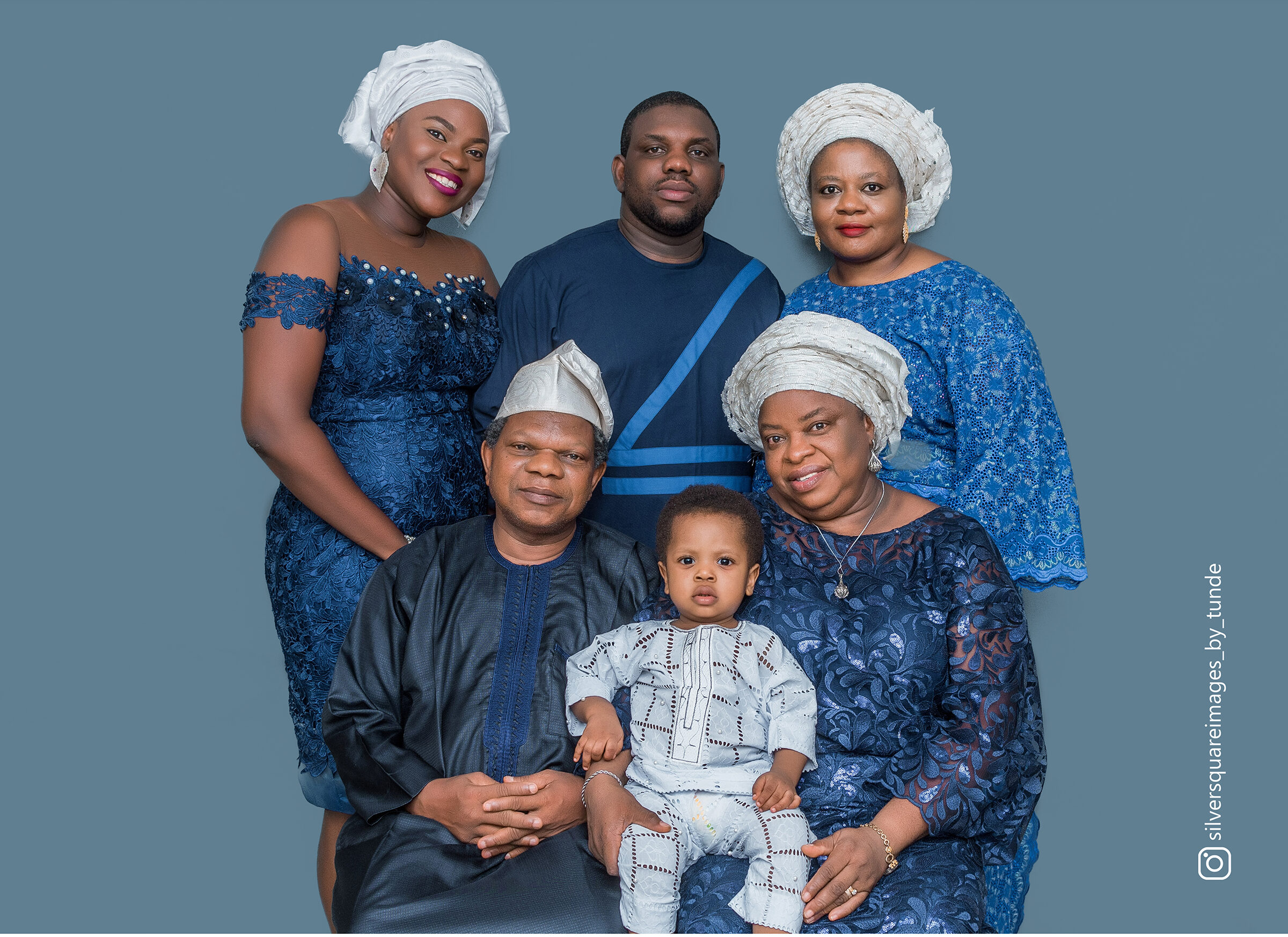40 Years Ago, Love Came Knocking for The Olatunjis and it’s Been Happy Ever After Since Then
A long, long time ago, two young medical students had a plan for their lives: work hard and become successful medical doctors. But then, love came knocking.
People say that the universe has a way of making dreams align, and when you meet someone who is the one, and who shares your dreams and plans, you know nothing else in the world matters. 40 years in marriage and the Olatunjis are waxing strong, their dreams aligning, their love more intense and their hearts still beating for one another.
For the Olatunjis, their decision to get married may have made some family members disappointed. For what it’s worth, two brilliant young people who had just completed medical school were expected to pursue their careers, have their feet planted first and become financially stable before starting a family. But for the couple, marriage felt right at that time. And they weren’t wrong.
People are inclined to fight what they do not understand, so it didn’t come as a shock when both families didn’t approve of both spouses’ decisions, even after the wedding.
And there was their first battle to fight: the interferences of extended family members.
Prof. Philip: I have 3 elder sisters and they are very opinionated. They used to come to our house once in a while at the time we were still struggling. They’d complain about what we had or didn’t have, what we did or didn’t do, and I knew that I had to stand up to them in order to protect and defend my wife.
There was a time we had my mother with us and some of them felt that we were not rich enough, we were not doing things right and I had to tell them, “look, you can come and have your mother if you are not satisfied” but that didn’t happen. My mother stayed with me until she passed on.
At first, it caused a little bit of misunderstanding but because we continued to show love to them in spite of that, they later came around became close to my wife. Now, they call her sometimes more than they call me and she also calls them.
So, sometimes, the protection of one another depends on each other and I also know that there are times when if you do not stand for your spouse before your own people, nobody will stand for him or her.
The Olatunjis may have been moving at a slower financial pace than what their family members expected of two young doctors. But there was something they had: an understanding of what marriage truly meant and the determination to make it work. “In thick and thin” are vows that should never be broken.
Dr Ayodeji: The word determination makes a whole difference. I remember when we first got married – I think in the first 3 years – we were post youth-service and rented an apartment in Ibadan. My father came on a visit and felt disappointed. Two doctors, no furniture, nothing. When we finished our discussion, he said, “I’m going to get a furniture man to finish a set of furniture for your house.” I knelt down and told him, “No.”
He said, ‘no, I’m just helping’ but I stood my ground. This is because I knew my father. I knew somewhere along the line in future, he may talk about it and I wouldn’t like it because it’s not as if we weren’t thinking about it. We were just taking our time and as at then, we already made a deposit for the furniture and weren’t in a hurry. So we stayed in our house the way we were. We had our speakers as seats, and a mat in the sitting room.
Sitting on floors – or, in this case, speakers and mats – is not the only sacrifice the couple had to make. Putting aside personal desires or ambitions in order to prioritise the needs of a relationship is tougher than many can envisage. And it is one Mrs Olatunji had to make.
Prof. Philip: My wife delayed her entry to residency. The principle she used was that she finished having children before she entered residency because we knew that it will stand in the way a little bit.
Dr Ayodeji: He started his residency as soon as we finished. I took the decision knowing that we were mates. This is not a world of competition. I’d seen how some of our senior colleagues who married at the same time and went into residency training together had been unhappy and burdened their children with unhappiness. They were not doing well, also and found it difficult to their postgraduate exams. So I said, “I’ll do mine later.”
For a man with such high hopes for his daughter, her father was disappointed.
Dr Ayodeji: My father came and told me, “if it’s the right way my parents trained me that I trained you, why should he (my husband) be reading to become a consultant and you are not doing the same?”
But she had the perfect response
Dr Ayodeji: I had to tell him, ‘this is my home.’ I did my residency five years after. My husband had nearly completed his own before I started.
Becoming a medical doctor is a feat that requires years of rigorous education and training. For couples who are both pursuing this profession, the journey to parenthood can be brought with difficulties and overwhelming. How do you tend to them in their infant stages and guide them through their teenage years amidst the demands of a medical career?
Dr Ayodeji: There were times I needed a maid and times I had more than one. However, the work of my maids was outlined. I never made personal care of my children to a maid. She was to help in washing plates and keeping the house okay.
When they were in kindergarten, before 6, I bathed them in the morning and at night. When children go to school and sustain injuries, I am likely to know quickly and attend to it since I am the one bathing them. I also made their personal snacks, made my own chinchin, groundnuts and everything so that from Monday till Friday, I just packed what I needed. I also made the rule that breakfast was not optional.
had maids all through and I think that reduced the stress. We also had lesson teachers coming home so we could supervise them. When it was time for biology teacher to be in my house, I’d call him. I also roamed the house to see what was going on. I asked the children what they did and did not do so. That communication was important.
Another thing we did not condone was children bringing in things that didn’t belong to them – like a child bringing home pencil that does not belong to him. We took him back to school and told the teacher that it was not his. I had my own brand of pencils so when they brought anything different, we knew. By so doing, they knew that it was not okay to bring other people’s things home.
We didn’t allow their teacher to go away with ‘this is how the school wants it.’ We gave them instructions about our children so they did not just become like one of the many children in school.
Prof. Philip: One of the things we did about parenting is that none of our kids went to boarding schools (and I am not recommending that to anybody.) We decided that primary and secondary school days were the only opportunity we had to pass anything to them. I remember that in Ilorin, we used to drive 17 km to school in the morning and pick them up in the afternoon. We had the opportunity of talking to them, praying with them, hearing and answering their questions.
Prof. Philip: Since the day of our wedding, we have never had different accounts. We have had joint accounts. And that doesn’t mean it is easy to run but we have run it successfully. Let me also say I think that most people who end up having problems with their spouses already saw the problem before marriage. Very importantly, if somebody has broken your arm during courtship, why are you surprised if the person breaks your leg after marriage?
The success of a marriage can already be predetermined. So if you’re going out with somebody and during an argument, he gives you a slap or boxes you or brings out a knife, and says sorry kneeling down or lying down, that should give you the red flag.










Comments
Post a Comment
Disclaimer: Opinions expressed in comments are those of the comment writers alone and does not reflect or represent the views of the blogger.